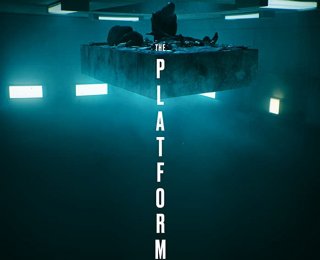Movie Review: Why You Should Watch “The Platform" While Stuck at Home During the Coronavirus
Easily found on Netflix, The Platform is a crackling social thriller.
Less than two months after Bong Joon-ho’s Parasite won the Academy Award for Best Picture, another piece of international cinema with a similar conceit is gaining huge viewership on Netflix.
The Platform, a Spanish film directed by first-timer Galder Gaztelu-Urrutia, was acquired by Netflix after its debut in the “Midnight Madness” genre section at the Toronto International Film Festival last fall. And while it hasn’t overtaken Tiger King, the film has been a mainstay of the streaming platform’s U.S. top ten list since it debuted on Netflix a little over a week ago.
With its dystopian bearing and intricate world-building, it’s not hard to see why the film has caught on during a pandemic. Also, at 90 minutes, it doesn’t take nearly as long to watch as Tiger King.
While Bong Joon-ho had nothing to do with The Platform, the film feels very much of a piece with the themes of his work—it particularly brings to mind Snowpiercer, except that it’s vertical instead of horizontal.
The Platform is set entirely within a futuristic, absurdist prison, known as “The Pit.” The two-person cells are arranged vertically, with each cell having a large rectangular hole in the middle, through which a large buffet of food is occasionally lowered. The catch is, the people at the top get at the food first, while those below them get whatever is left. But exactly how many levels are in the prison—100? 200? 300?—isn’t exactly clear at first.
We’re introduced first to Goreng, a prisoner played by Spanish actor Iván Massagué, and his older cellmate Trimagasi (Zorion Eguileor), as they discuss the system, how it works, and what they can do to survive. We later learn there’s a monthly shuffle of levels, and the audience is introduced to all of the creative ways the prisoners can climb—or fall. There’s also Miharu (Alexandra Masangkay), a woman who says she’s looking in the prison for her missing child.
Things do get a bit violent and gross; if you suspected that this premise must necessarily involve some degree of violence and cannibalism, you guessed correctly.
It’s a compelling and thrilling story, although don’t expect a lot of answers about the why, nor an ending that’s in any way definitive.
Note: In the United States, Netflix has opted to present a version of the film that’s, by default, dubbed in English, although it’s possible to change that setting and watch with subtitles instead, if you’re willing to get over what Bong Joon-ho referred to as the “one-inch barrier.”
Stephen Silver, a technology writer for The National Interest, is a journalist, essayist and film critic, who is also a contributor to Philly Voice, Philadelphia Weekly, the Jewish Telegraphic Agency, Living Life Fearless, Backstage magazine, Broad Street Review and Splice Today. The co-founder of the Philadelphia Film Critics Circle, Stephen lives in suburban Philadelphia with his wife and two sons.
Image: The Platform/IMDB

